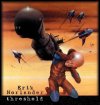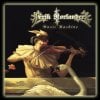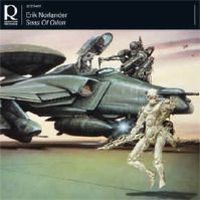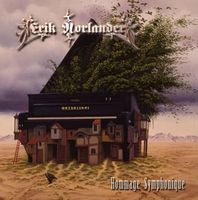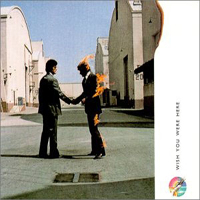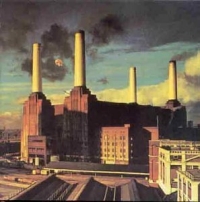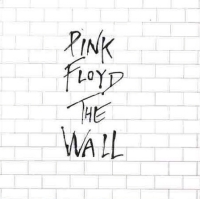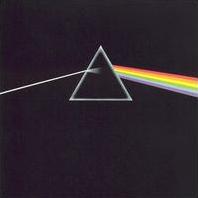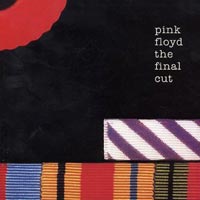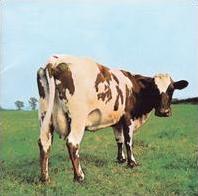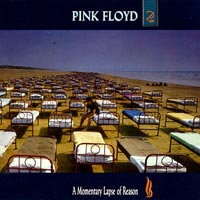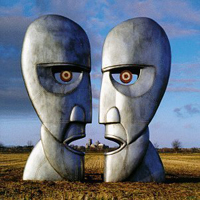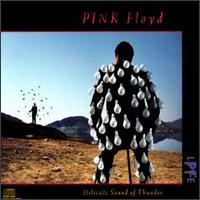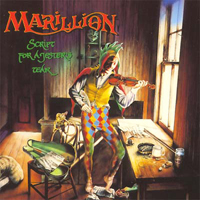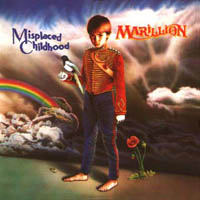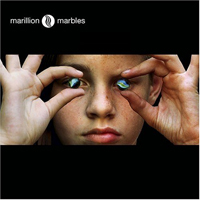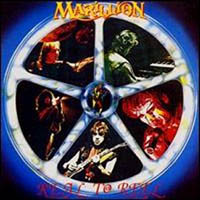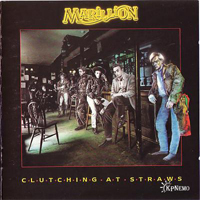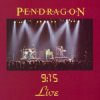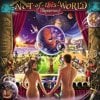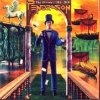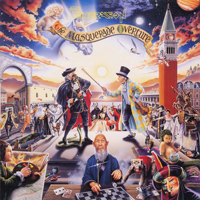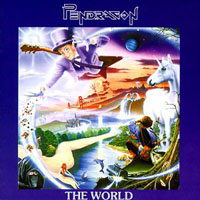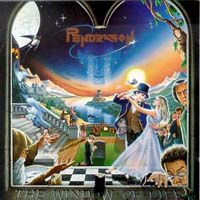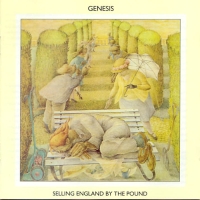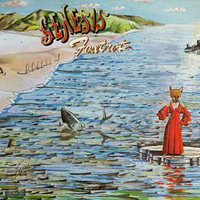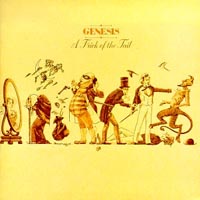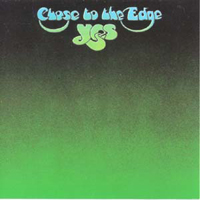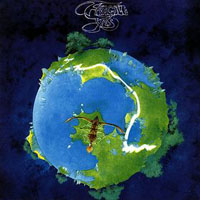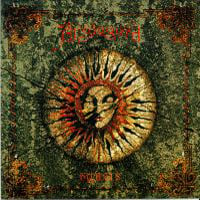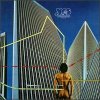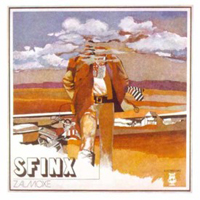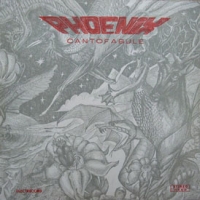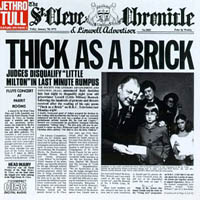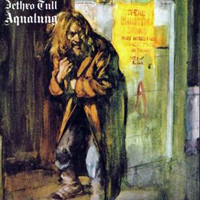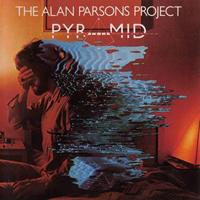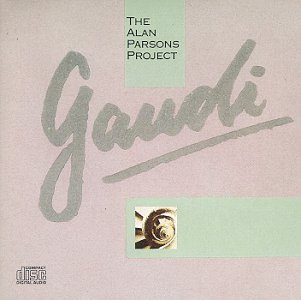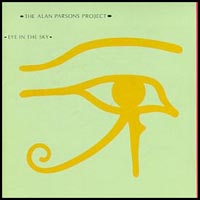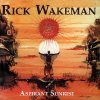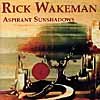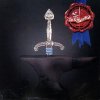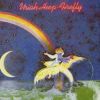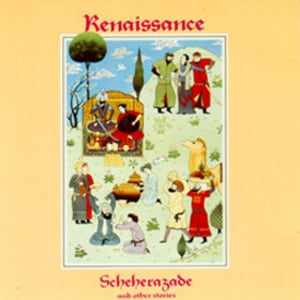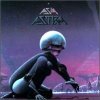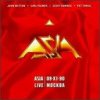Had Sigmund Freud lived 40 more years (to the overripe old age of 123), he would have been delighted to hear such a wonderful example of his life's psychoanlytic work embodied in the haunting lyrics of "Mother." Or had Oedipus lived a few millennium longer than his fictional death he would have found an adversary in the youthful Pink, a young boy whose desire for maternal acceptance and love is arguably equal to the greatest mother-centered protagonists in the history of literature. Contrary to the eye-gouging antics of Oedipus or even the grandiose melodrama later in Floyd's album, "Mother" is relatively low-key and emotionally subtle. The music itself is interestingly split, though with few if any seams to show for it, between the gloomy and simple verse chords and the effervescent, nursery rhyme-like chorus. Coupled with these seemingly disjointed yet oddly congruent styles are the blistering guitar solo and unsettling lyrics, all of which culminate in a perfect example of Floydian schizophrenia. The simple chord progression and uncomplicated lyrical delivery reflect Pink's childhood innocence at the time the song takes place. The very inquisitiveness emulates those youthful stages when the world is one big mystery. Why is the sky blue? Why does the ocean have waves? Where do babies come from? While the steady stream of inquiries seems to imply that Pink is rather young, with most children going through the "question" phase of development around 3 or 4 years of age, the level of seriousness shrouded behind the questions characterize Pink as being fairly older. The implications of governmental conspiracy and public ridicule indicate Pink's age as being around 12 to 14, that age when one learns that many of the world's most time-honored institutions are nothing more than hollow shells of public hope and dictatorial vanity. Santa Claus isn't real and there are many major religions that worship other deities than Christ. It's an age of discovery and self-recreation, when one must adapt and reinvent himself or herself in light of new knowledge. By this reading, the song's question (Pink) and answer (Mother) technique fits perfectly with this stage of budding self and global awareness. From the great Greek philosophers who used questions and answers to illustrate and promote self-realization and their own philosophical ideas, the dialogue form is often the favored method for encouraging mental and philosophical progression. So why would the band choose to illustrate such a serious stage of personal development with the nursery rhyme-like style of the song's chorus? Before we get to that, the song's emotional and psychological message must first be examined.
greatest mother-centered protagonists in the history of literature. Contrary to the eye-gouging antics of Oedipus or even the grandiose melodrama later in Floyd's album, "Mother" is relatively low-key and emotionally subtle. The music itself is interestingly split, though with few if any seams to show for it, between the gloomy and simple verse chords and the effervescent, nursery rhyme-like chorus. Coupled with these seemingly disjointed yet oddly congruent styles are the blistering guitar solo and unsettling lyrics, all of which culminate in a perfect example of Floydian schizophrenia. The simple chord progression and uncomplicated lyrical delivery reflect Pink's childhood innocence at the time the song takes place. The very inquisitiveness emulates those youthful stages when the world is one big mystery. Why is the sky blue? Why does the ocean have waves? Where do babies come from? While the steady stream of inquiries seems to imply that Pink is rather young, with most children going through the "question" phase of development around 3 or 4 years of age, the level of seriousness shrouded behind the questions characterize Pink as being fairly older. The implications of governmental conspiracy and public ridicule indicate Pink's age as being around 12 to 14, that age when one learns that many of the world's most time-honored institutions are nothing more than hollow shells of public hope and dictatorial vanity. Santa Claus isn't real and there are many major religions that worship other deities than Christ. It's an age of discovery and self-recreation, when one must adapt and reinvent himself or herself in light of new knowledge. By this reading, the song's question (Pink) and answer (Mother) technique fits perfectly with this stage of budding self and global awareness. From the great Greek philosophers who used questions and answers to illustrate and promote self-realization and their own philosophical ideas, the dialogue form is often the favored method for encouraging mental and philosophical progression. So why would the band choose to illustrate such a serious stage of personal development with the nursery rhyme-like style of the song's chorus? Before we get to that, the song's emotional and psychological message must first be examined.
Similar to the music, the lyrics are as subtle as they are unsettling. Although the song takes a seemingly forthright form of question and answer, the psychological implications behind the lyrics are far from being simple and straightforward. Although the battling was over, the effects of World War II were still extent in the years following the atrocious fight. The destruction of Hiroshima and Nagasaki by the atomic bomb as well as the deaths of millions of Holocaust victims and soldiers were all too fresh in the  global consciousness. Fears of nuclear warfare and continued fighting ran rampant through the post-war world, instilling a sense of uncertainty in the generations of and following the war. Such fears are blatantly reflected by the first line of the song in which Pink asks his mother if "they'll drop the bomb," referring to the apprehension of enemy retaliation. However, this line, as well as the majority of the lyrics, is open to a wide range of interpretation. Because of the psychological tendency to group people into two main categories (those like "us" and those apart from "us," or the Other) coupled with the recent divisions of global powers in the war, one automatically assumes that the "they" Pink refers to is the enemy of the Allied forces. Reading the lyrics in this light illustrates Pink's burgeoning global awareness, thereby exhibiting his maturing persona. Yet taking into account that the "they" in the rest of the lyrical stanza oppose Pink in some personal manner casts a different light on the first line. In the succeeding lines, Pink wonders if "they'll like this song" or "try to break my balls," metaphorically referring to emasculation through personal attack, implying that his fears are much more personal rather than global. Therefore, "the bomb" becomes a symbol of any kind of destructive power in life, especially when considering that a bomb killed Pink's dad in the war. Accordingly, the "they" becomes as faceless and unrecognizable as the molded children in "Brick in the Wall, 2." No longer is there a discernible enemy. "They" could be anything from a collective appellation for Life in general to one's closest friend; "they" becomes anything that has potential destructive powers. The war, Pink's teacher, and, as we learn in this song, Pink's mother are all "they"s in the life of Pink. Because he realizes that this Other could be any situation, person, or thing and that they could "drop the bomb" (i.e. cause destruction in his life) at any time, he is consumed with an overwhelming fear, or paranoia rather, of the external world. Being that there is so much potential danger in the world, Pink asks his mother if he should "build a wall." For Pink who is already growing more and more paranoid at such an early age, the internal is his only safe haven from the dangers of the injurious world.
global consciousness. Fears of nuclear warfare and continued fighting ran rampant through the post-war world, instilling a sense of uncertainty in the generations of and following the war. Such fears are blatantly reflected by the first line of the song in which Pink asks his mother if "they'll drop the bomb," referring to the apprehension of enemy retaliation. However, this line, as well as the majority of the lyrics, is open to a wide range of interpretation. Because of the psychological tendency to group people into two main categories (those like "us" and those apart from "us," or the Other) coupled with the recent divisions of global powers in the war, one automatically assumes that the "they" Pink refers to is the enemy of the Allied forces. Reading the lyrics in this light illustrates Pink's burgeoning global awareness, thereby exhibiting his maturing persona. Yet taking into account that the "they" in the rest of the lyrical stanza oppose Pink in some personal manner casts a different light on the first line. In the succeeding lines, Pink wonders if "they'll like this song" or "try to break my balls," metaphorically referring to emasculation through personal attack, implying that his fears are much more personal rather than global. Therefore, "the bomb" becomes a symbol of any kind of destructive power in life, especially when considering that a bomb killed Pink's dad in the war. Accordingly, the "they" becomes as faceless and unrecognizable as the molded children in "Brick in the Wall, 2." No longer is there a discernible enemy. "They" could be anything from a collective appellation for Life in general to one's closest friend; "they" becomes anything that has potential destructive powers. The war, Pink's teacher, and, as we learn in this song, Pink's mother are all "they"s in the life of Pink. Because he realizes that this Other could be any situation, person, or thing and that they could "drop the bomb" (i.e. cause destruction in his life) at any time, he is consumed with an overwhelming fear, or paranoia rather, of the external world. Being that there is so much potential danger in the world, Pink asks his mother if he should "build a wall." For Pink who is already growing more and more paranoid at such an early age, the internal is his only safe haven from the dangers of the injurious world.
Yet Pink's youthful imaginings shine through even amidst his budding paranoia when he asks if he should "run for president." To clear up a few misconceptions, I seriously doubt that this is a realistic dream of running for United States president considering that Pink is, after all, British. Rather, I believe that the unspecified presidency is used to show that despite his hardening world and personal views, Pink is still young and thus full of childlike expectations and dreams. All dream of being great and important figures at some time or another, Pink is no exception. Still, his momentary dreams of great political power are quashed when his overpowering apprehension takes over when he questions the trustworthiness of the government, wondering if "they'll put me in the firing line." Once again, the "they" is unspecified and can refer to either the actual government or anyone who assails and criticizes those with power. As Pink realizes, power and greatness merely emphasize the vulnerability of a person; when one is in the spotlight, he or she is that much more susceptible to public criticism and attack.
thus full of childlike expectations and dreams. All dream of being great and important figures at some time or another, Pink is no exception. Still, his momentary dreams of great political power are quashed when his overpowering apprehension takes over when he questions the trustworthiness of the government, wondering if "they'll put me in the firing line." Once again, the "they" is unspecified and can refer to either the actual government or anyone who assails and criticizes those with power. As Pink realizes, power and greatness merely emphasize the vulnerability of a person; when one is in the spotlight, he or she is that much more susceptible to public criticism and attack.
Now it's time for you as a Floyd fan to pick your favorite next line because the band has given us a few choices. The album version ends the verse with "is it just a waste of time," with the "it" arguably referring to Life in general. In light of all of life's hardships, Pink is wondering if it's even worth living. In the movie, Pink sings "am I really dying," referencing his childhood sickness that is further recounted in "Comfortably Numb" as well as the idea that life is nothing more than a gradual death which also reemphasizes Pink's reluctance to continue remaining vulnerable by living in the external world. In concert, Waters sang "what a crazy time," perhaps in reference to the chaotic, post-war and postmodern world Pink grew up in as well as the often-tumultuous phase of adolescence and personal discovery. Whichever line you choose, each contributes a different yet cohesive view of Pink's fragmenting and confused personality.
In true dialogue form, Pink's mother takes over at this part of the song to expand on everything Pink has discussed thus far. What's most interesting about the mother's voice is that it isn't so much a true-to-life recreation of her thoughts and sayings as it is a loose representation of her actions and what those actions are doing and have done to Pink. While the point of view is partly through the mother's eyes, there's a hint of something else behind her words, an omniscience that is beyond her or young Pink's view. It's as if the mother's actions rather than her thoughts and words are speaking, referring to herself in the third person ("she") rather than the first ("I"). No reasonably sane mother would knowingly hurt her own child yet millions of mother's in the world physically and psychologically harm their children through their actions. What one  mother might think is best for her child could very well be the thing that causes the most detriment, as in the case of Pink. I personally don't think the mother is directly speaking but the effects of her actions certainly are. The problem with Pink's mother isn't that she is inherently evil or psychotic but rather that she is overprotective. As Waters said in a 1979 interview, "if you can level one accusation at mothers it is that they tend to protect their children too much. Too much and for too long. That's all." Having lost her husband to the war and seeing her son as the only remaining extension of the man she loved, the mother tries every imaginable way to keep her son "under her wing." Unfortunately, such overprotection results in the psychological projection of her own fears onto her son, overcompensating for the loss of her husband by keeping Pink safe from any harm that might arise. In this light, the earlier scenes of Pink dressing in his father's uniform ("Tigers, 2") take on an even stranger tone considering that Pink, in a sense, becomes his father in the watchful eye of his mother in that he is the last remnant of his father. By trying to make up for the past (the mother "failed" at protecting her husband from death and so is determined to keep Pink safe), Mother ultimately stifles what Pink might have been. As if in response to his dreams of greatness at being "president" (symbolically), the mother proclaims that "she won't let you fly but she might let you sing," insinuating that Pink is only allowed brief and fleeting moments of individuality and personal discovery. Instead of the risk of greatness, the mother keeps him "cozy and warm" before finally, and eerily, answering his earlier question by offering to "help build the wall." Whether she is cognizant of it or not (most likely not), the mother's actions largely contribute to Pink's later isolationism. In trying to keep him as safe as can be she inadvertently produces the most harm.
mother might think is best for her child could very well be the thing that causes the most detriment, as in the case of Pink. I personally don't think the mother is directly speaking but the effects of her actions certainly are. The problem with Pink's mother isn't that she is inherently evil or psychotic but rather that she is overprotective. As Waters said in a 1979 interview, "if you can level one accusation at mothers it is that they tend to protect their children too much. Too much and for too long. That's all." Having lost her husband to the war and seeing her son as the only remaining extension of the man she loved, the mother tries every imaginable way to keep her son "under her wing." Unfortunately, such overprotection results in the psychological projection of her own fears onto her son, overcompensating for the loss of her husband by keeping Pink safe from any harm that might arise. In this light, the earlier scenes of Pink dressing in his father's uniform ("Tigers, 2") take on an even stranger tone considering that Pink, in a sense, becomes his father in the watchful eye of his mother in that he is the last remnant of his father. By trying to make up for the past (the mother "failed" at protecting her husband from death and so is determined to keep Pink safe), Mother ultimately stifles what Pink might have been. As if in response to his dreams of greatness at being "president" (symbolically), the mother proclaims that "she won't let you fly but she might let you sing," insinuating that Pink is only allowed brief and fleeting moments of individuality and personal discovery. Instead of the risk of greatness, the mother keeps him "cozy and warm" before finally, and eerily, answering his earlier question by offering to "help build the wall." Whether she is cognizant of it or not (most likely not), the mother's actions largely contribute to Pink's later isolationism. In trying to keep him as safe as can be she inadvertently produces the most harm.
In response to Pink's mother, the ensuing guitar solo blazes into life out of nowhere almost as if musically representing one of Pink's few outbursts of individuality. The reaching voice of the ascending arpeggios gives way to the descending notes that lead back into Pink's paranoid musings. However, more has elapsed between the mother's chorus and Pink's last verse than a guitar solo. "Do you think she's good enough for me," Pink intones in the first line with the general implication that time has elapsed since the adolescent musings of the song's first half. Although it is unknown whether the "she" is just a girlfriend, his wife, or women in general, Pink is apparently in a relationship implying that he is at least a few years older than he was earlier in the song. In that time, Pink's paranoia has seemingly shifted, now including his mother in the list of "they"s in that he now addresses her cynically, asking if the girl he's chosen is "dangerous for him" and sarcastically wondering whether she'll "tear your little boy apart." It seems that Pink has become aware of the damage caused by his mother's overprotection and in response is using her maternal fears against her, mocking her motherly defense with every line and caustic tone of voice.
While Pink's attitude has changed, his mother's has not. Her unwavering protection continues with the last chorus in which she vows to "not let anyone dirty get through." Declaring that she'll "wait up until you get in" and "always find out where you've been," her overprotective resolve to keep Pink "healthy and clean" is merely strengthened. Out of all of her lyrics, the last line is perhaps the most telling and the most damning in which Mother says that Pink will "always be baby to me," emphasizing her personal  bond with her child by finally referring to herself in the first person ("me"). For her, Pink will always remain "Baby Blue" and so need her protection, an idea of vigilant guardianship that comes full swing later in "the Trial." The viewer finds that while Pink is physically and mentally older, his mother still holds him captive, restraining him "under [her maternal] wing." Even though Pink is frothing at the bit to discover the world outside of his house, his town, and his country, his mother projects onto him eternal infancy where he'll "always be baby to me." Thus the song is schizophrenically split between two conflicting frames of mind, both musically and lyrically: between Pink's blooming self in the somber verses and the mother's overprotection of her child's innocence in the nursery rhyme-style chorus. We finally see that the mother's chorus is so much like a nursery-rhyme because she continually views her child as nothing more than a helpless infant.
bond with her child by finally referring to herself in the first person ("me"). For her, Pink will always remain "Baby Blue" and so need her protection, an idea of vigilant guardianship that comes full swing later in "the Trial." The viewer finds that while Pink is physically and mentally older, his mother still holds him captive, restraining him "under [her maternal] wing." Even though Pink is frothing at the bit to discover the world outside of his house, his town, and his country, his mother projects onto him eternal infancy where he'll "always be baby to me." Thus the song is schizophrenically split between two conflicting frames of mind, both musically and lyrically: between Pink's blooming self in the somber verses and the mother's overprotection of her child's innocence in the nursery rhyme-style chorus. We finally see that the mother's chorus is so much like a nursery-rhyme because she continually views her child as nothing more than a helpless infant.
The song ends with Pink forlornly asking if "it need[ed] to be so high?" The point in time is either that of Pink's last verse (when he cynically asks about his relationship with a girl) or possibly later in life (Pink's present state fully enshrined behind his wall). Being that the line is as ambiguous as the rest of the song's lyrics, there is much debate as to what "it" refers to. One theory is that Pink is looking over his childhood and reflecting on his mother's overprotection, wondering if she really had to set her expectations for him at such an overwhelming height. Another view is that "it" refers to Life in general as it has in previous songs. By this reading, Pink questions whether life really had to be so hard and whether pleasure in life had to be so unattainable. But perhaps the most widely accepted reading has "it" referring to the Wall itself with Pink asking if his wall had to be so daunting, so unavoidable, and so insurmountable. Although everyone has a wall, Pink possibly victimizes himself by believing that his is greater and higher than the rest. As Raven so adequately put it in an e-mail: "'Mother, I know I needed a wall, but did it have to be so high that I can't get back out if I need to?'" As we will see later, there is a way out yet Pink is so full of self-pity and contempt for the world that he is blind to any means of escape.
The music is the first noticeable difference between the album and movie versions of "Mother." The simple and gloomy acoustic guitar is replace in the movie with what sounds like a xylophone or some similar instrument picking the individual notes of the song. The resulting sound is very childish and very much like a nursery rhyme, along the same lines as the chorus on the album version. It's almost as if the music is playing from a toddler's hanging mobile, further emphasizing the childlike state that Pink's mother tries to contain her child within. Yet as we see later in the song, the Young Pink is much older than the toddler image that the music evokes. What is odder than this, though, is that the song begins not with images of Pink's mother but with remembrances of his wife. The viewer first sees a Polaroid photograph of Pink and his wife sitting on the bedside table as Pink vainly tries to reach someone on the phone. A quick flashback of Pink and his wife kissing follows, insinuating that it is she that Pink is trying to call. As he hugs his pillow to himself after placing the phone receiver in the cradle, there is a quick shot of Young Pink in a similar position resting his head on his mother's chest. Had Pink been a young toddler, the scene would be relatively unremarkable, yet there is certainly something peculiar at seeing an obviously adolescent boy lying on his mother's bosom in such an infantile posture. Even before the song's lyrics start, Waters is already setting up the framework for the song, showing the overprotective, maternal hold of the mother and Pink's perpetual infancy. In perfectly Freudian fashion, it's these very musings about his mother that trigger thoughts about his wife and vice versa. Many psychoanalysts such as Sigmund Freud purported that most people form relationships with people who remind them of their parents, whether similar in physical appearance or personal demeanor. Freud saw this phenomenon as an extension of the Oedipal / Electra complex (depending on the person's gender) in that the parent of the opposite sex is usually the first person a child loves and seeks love from. Therefore, finding a spouse who is similar to that parent is simply an offshoot of those original puerile feelings. It's hard to say at this time if there are any similar qualities between Pink's wife and mother considering that "Mother" is the first time the viewer is introduced to the wife (in the movie) and one of the first descriptions of Pink's mother.
In the following scene we find the white / red color scheme first depicted in "Happiest Days of Our Lives" in the hall that young Pink sits in. A punished young child walks out of the office Pink sits by, insinuating that it is Pink's turn to be chastised for some offense (perhaps he has been writing more poetry). As I mentioned before, the white and red were shown in the school to subtly show part of the cause of Pink's later outburst in the second "In the Flesh." While the colors are once again shown in the school, they are also depicted in the context of the song "Mother," thereby alluding to the mother's own culpability for adding bricks to Pink's wall and for ultimately creating the Nazi-esque Pink later in the album. As the song unfolds, the viewer begins to see how the mother contributed so many bricks to Pink's wall and how it affected him as an adult (before his final breakdown). Case in point: the following scenes alternate between young Pink watching a neighbor girl undress and adult Pink watching television as his wife undresses. [A side note on Pink's wife: we mainly see her undressing through her shadow, something that will come up later in "Don't Leave Me Now." Additionally, the fact that she is largely viewed by her shadow suggests that she is almost always outside of Pink's periphery, hardly ever getting his full attention.] As we see, young Pink gets thoroughly into the role of voyeur, turning off the light, smoking a cigarette, and watching the girl through binoculars, all to enhance the euphoria of adolescent sexual discovery. Oddly, the adult Pink couldn't care less that his wife undresses before him while trying to entice him out of his TV induced daze. As she sits bare-chested in front of him on the bed, Pink maneuvers himself so that he can see the television. The contrast between the normal sexuality of young Pink and the near-sterility of adult Pink is obvious albeit a bit confusing. But as the scene plays on, we see why adult Pink has become what he is; just as young Pink immerses himself into his voyeuristic strip-show, his mother opens the door to his room, prompting him to quickly put out the cigarette and feign studying. The composition of this scene is beautiful and telling with the face of the mother obscured from sight, making her more of a generalized force of motherhood rather than a specific mother. Moreover, the shot of Pink shamefully looking back at his mom is set up so that the camera looks down on him from above, evoking feelings of the ominous and ever-watchful eye of the god-like Mother.
between young Pink watching a neighbor girl undress and adult Pink watching television as his wife undresses. [A side note on Pink's wife: we mainly see her undressing through her shadow, something that will come up later in "Don't Leave Me Now." Additionally, the fact that she is largely viewed by her shadow suggests that she is almost always outside of Pink's periphery, hardly ever getting his full attention.] As we see, young Pink gets thoroughly into the role of voyeur, turning off the light, smoking a cigarette, and watching the girl through binoculars, all to enhance the euphoria of adolescent sexual discovery. Oddly, the adult Pink couldn't care less that his wife undresses before him while trying to entice him out of his TV induced daze. As she sits bare-chested in front of him on the bed, Pink maneuvers himself so that he can see the television. The contrast between the normal sexuality of young Pink and the near-sterility of adult Pink is obvious albeit a bit confusing. But as the scene plays on, we see why adult Pink has become what he is; just as young Pink immerses himself into his voyeuristic strip-show, his mother opens the door to his room, prompting him to quickly put out the cigarette and feign studying. The composition of this scene is beautiful and telling with the face of the mother obscured from sight, making her more of a generalized force of motherhood rather than a specific mother. Moreover, the shot of Pink shamefully looking back at his mom is set up so that the camera looks down on him from above, evoking feelings of the ominous and ever-watchful eye of the god-like Mother.
In the succeeding scenes and as mentioned above in the lyric analysis, Pink asks his mother if he's "really dying" accompanying images of Pink lying in bed (in all actuality looking more worried than sick) with a doctor and his mother beside him. The doctor then points a finger at the mother (perhaps accusingly? As if the mother has worried Pink into illness) and the two walk into the hall to discuss the sickness, closing the door behind them. There are many interesting portions to the scene as a whole, all of which contribute to the sense of mounting anxiety. Firstly, when the mother closes the door to Pink's room, the room is thrown into a cold, blue light implicating Pink's continual existence as "Baby Blue" to the mother. Corresponding to the lyrics of nightmares and fears, fantastical shadows appear on the ceiling resembling the masks worn by the children in "Another Brick in the Wall 2." Just as those certain teachers seek to shape the children into model citizens, the "nightmares" and "fears" of Pink's mother mold Pink into a copy of her own worrisome mind. Simply put, Pink loses his individuality with every passing day under Mother's watchful eye, putting on another mask when he takes on his mom's fears as a part of his own persona.  Psychoanalytically speaking, the mother projects her personality onto her son and thereby forms him into what she desires, fears, or both. Because she fears so much for Pink's health and well being, Pink unknowingly takes in those fears and becomes sick. A simpler theory might claim that Pink has a mild fever and the mother, true to her overprotective nature, calls in a doctor, worried that the fever will lead to something fatal. Whatever theory one might take, the overprotection of Mother is still emphasized above all else. Yet it's not just the mom who is contributing to this cycle of perpetual infancy for the next scene shows Pink sneaking into his mother's room and climbing into bed with her, seeking her maternal protection. Interestingly, this moment of action in which Pink pursues maternal guardianship is juxtaposed with a shot of adult Pink touching his sleeping wife's shoulder. Note the same blue light in the scene in adult Pink's bedroom, further equating the mother with the wife and, as Gerald Scarfe says on the DVD commentary, "muddling up his mother with his girlfriend [wife]" in Pink's mind. Like the mother who hardly wakes when Pink climbs into her bed, the wife simply rolls over in her sleep, facing away from Pink. I can't help but be reminded of a line from "The Hero's Return" on Floyd's album "the Final Cut" which reads: "Sweet heart, sweet heart, are you fast asleep? Good, cause that's the only time when I can really speak to you. There is something that I've locked away. A memory that is too painful to withstand the light of day." Considering the fact that "the Final Cut" is a sort of sequel to "the Wall" in the loosest way imaginable (a few of the songs are "Wall" leftovers or continuations), I'd like to think that this line was spoken by Pink to his sleeping wife regarding his wall. It's only when his wife is asleep that he can truly speak his mind without feeling like he's putting himself out there to be torn down and ridiculed. If this line was written with no Pink or Wall intentions, I'd like to think that Waters and Parker were inspired by it so much that they shot this scene. But that could very well be my wishful thinking. Nevertheless, the tones of both this scene and the line from "the Hero's Return" are similar. Both characters (Pink and "Final Cut" narrator) simply cannot communicate for fear of revealing too much of their inner selves for fear of baring their souls and being met with destructive criticism. Pink seeks his mother's protection and his wife's companionship only when they are asleep and unable to disparage him.
Psychoanalytically speaking, the mother projects her personality onto her son and thereby forms him into what she desires, fears, or both. Because she fears so much for Pink's health and well being, Pink unknowingly takes in those fears and becomes sick. A simpler theory might claim that Pink has a mild fever and the mother, true to her overprotective nature, calls in a doctor, worried that the fever will lead to something fatal. Whatever theory one might take, the overprotection of Mother is still emphasized above all else. Yet it's not just the mom who is contributing to this cycle of perpetual infancy for the next scene shows Pink sneaking into his mother's room and climbing into bed with her, seeking her maternal protection. Interestingly, this moment of action in which Pink pursues maternal guardianship is juxtaposed with a shot of adult Pink touching his sleeping wife's shoulder. Note the same blue light in the scene in adult Pink's bedroom, further equating the mother with the wife and, as Gerald Scarfe says on the DVD commentary, "muddling up his mother with his girlfriend [wife]" in Pink's mind. Like the mother who hardly wakes when Pink climbs into her bed, the wife simply rolls over in her sleep, facing away from Pink. I can't help but be reminded of a line from "The Hero's Return" on Floyd's album "the Final Cut" which reads: "Sweet heart, sweet heart, are you fast asleep? Good, cause that's the only time when I can really speak to you. There is something that I've locked away. A memory that is too painful to withstand the light of day." Considering the fact that "the Final Cut" is a sort of sequel to "the Wall" in the loosest way imaginable (a few of the songs are "Wall" leftovers or continuations), I'd like to think that this line was spoken by Pink to his sleeping wife regarding his wall. It's only when his wife is asleep that he can truly speak his mind without feeling like he's putting himself out there to be torn down and ridiculed. If this line was written with no Pink or Wall intentions, I'd like to think that Waters and Parker were inspired by it so much that they shot this scene. But that could very well be my wishful thinking. Nevertheless, the tones of both this scene and the line from "the Hero's Return" are similar. Both characters (Pink and "Final Cut" narrator) simply cannot communicate for fear of revealing too much of their inner selves for fear of baring their souls and being met with destructive criticism. Pink seeks his mother's protection and his wife's companionship only when they are asleep and unable to disparage him.
The next scene is similarly intricate and full of meaning (what in this album ISN'T?!?). Once again, Young Pink runs down the stairs but when he opens the door, he sees (at least in his mind) a skeleton lying next to his mother in bed. One is immediately reminded of Pink's dead father, an idea that lends itself to an interpretation of the Mother rather than Pink. The mother is unable to continue with her life because she holds so fast to the memory of her dead husband and because she refuses to let him die by keeping him alive, in a sense, by projecting her feelings concerning the husband onto Pink. This reading implies that continual grieving leads to decay rather than the preservation of memory of the deceased. The mother decays because she is unable to move on in her life and Pink decays because he is restricted from growing mentally and emotionally by her unyielding protection. Another interpretation of this scene fits more closely with the actual music of the album. Right as Pink discovers the  skeleton, Gilmour's guitar solo roars into electric life. As I previously stated, the guitar solo can be heard as an outburst of individuality and self-discovery for Pink. If such is true, then Pink's discovery of the skeleton corresponds with his own self-discovery. Metaphorically speaking, Pink sees himself as the skeleton in the bed and realizes the damaging effects of his mother's overprotection, thus accounting for his change in tone between his first and last verses. He finally comprehends the stifling death of individuality that he is being put through and lashes out against his mother's refuge. This idea is further emphasized with the flash-forward to Pink's wedding, showing that Pink has moved beyond the grasp of his mother by marrying. Or has he? As Freud would believe, perhaps he is further entrenching himself in the idea of maternal protection by marrying someone whom he believes to be like his mother. It's difficult to say at this time being that we have little character background for the wife. From all indications, the wife's personality is certainly different from Mother's. The scene after the solo in which Pink's wife tries to get his attention at the piano is far from the ominous feelings evoked by scenes containing the mother. The wife appears to be loving, jovial, and most of all hurt by Pink's lack of communication, all of which are qualities that can't be applied to the mother. The wife eventually leaves the room feeling neglected and Pink continues in his daze, having "taken too many drugs at this point, in my view" as Roger Waters states on the DVD. Despite the apparent incongruities between Freud's theories and Pink's choice of a non-Mother-like wife, another interpretation is born. As the second verse implies, Pink tries to find a girlfriend / wife who is nothing like his mother, who is the antithesis of everything that his mother wanted him to have. However he is not happy with his choice. Instead, he longs for the maternal protection and affection that he has forsaken and not finding it in the non-Mother-like wife he's chosen, Pink turns to other things to fill the void (see "What Shall We Do Now?").
skeleton, Gilmour's guitar solo roars into electric life. As I previously stated, the guitar solo can be heard as an outburst of individuality and self-discovery for Pink. If such is true, then Pink's discovery of the skeleton corresponds with his own self-discovery. Metaphorically speaking, Pink sees himself as the skeleton in the bed and realizes the damaging effects of his mother's overprotection, thus accounting for his change in tone between his first and last verses. He finally comprehends the stifling death of individuality that he is being put through and lashes out against his mother's refuge. This idea is further emphasized with the flash-forward to Pink's wedding, showing that Pink has moved beyond the grasp of his mother by marrying. Or has he? As Freud would believe, perhaps he is further entrenching himself in the idea of maternal protection by marrying someone whom he believes to be like his mother. It's difficult to say at this time being that we have little character background for the wife. From all indications, the wife's personality is certainly different from Mother's. The scene after the solo in which Pink's wife tries to get his attention at the piano is far from the ominous feelings evoked by scenes containing the mother. The wife appears to be loving, jovial, and most of all hurt by Pink's lack of communication, all of which are qualities that can't be applied to the mother. The wife eventually leaves the room feeling neglected and Pink continues in his daze, having "taken too many drugs at this point, in my view" as Roger Waters states on the DVD. Despite the apparent incongruities between Freud's theories and Pink's choice of a non-Mother-like wife, another interpretation is born. As the second verse implies, Pink tries to find a girlfriend / wife who is nothing like his mother, who is the antithesis of everything that his mother wanted him to have. However he is not happy with his choice. Instead, he longs for the maternal protection and affection that he has forsaken and not finding it in the non-Mother-like wife he's chosen, Pink turns to other things to fill the void (see "What Shall We Do Now?").
At this point in the movie, the song has really become less about the actual Mother of the title and more about the effects she's had on Pink's adult life. She's affected his sexuality, his inability to communicate freely, his attitude towards women. And because of these effects, Pink's wife eventually finds solace and love in another man.
In my opinion, the shots of Pink in a ballroom dancing class are mainly used to emphasize his adolescent humiliation caused by his mother. It is obvious that Pink does not wish to be in the class; he has no dance partner and when he finally does ask a girl to dance, she is twice his height and seemingly reluctant to dance with him. On the DVD, Waters claims that this scene was inspired by a true childhood event. Though his real mother, he claims, wasn't as overprotective as Pink's, she did make him attend ballroom dancing lessons in knee-high pants against his wishes, humiliating the young Waters so much that the memory is indelibly etched into his memory. While Pink is wearing full pants instead of knee-highs, the humiliation is still present in the awkwardness of Pink's pairing with a taller girl.
After this brief digression into Pink's past, the arc returns to the relative-present in which Pink, unable to contact his wife, curls into the fetal position on his bed, once again emphasizing his inability to leave his infancy…another effect of his mother's overprotection. The viewer finally, but not surprisingly, gets to see why Pink is unable to contact his wife as the final line is sung. Referencing his growing wall, the line is sung over the metaphorical placement of yet another brick: the wife's infidelity. Similar to the earlier shot in which the mother's head is obscured, making her less personal and more of a universal force, the final shot in the song merely shows the entangled legs of two lovers, their faces unseen but their actions overwhelmingly felt.
After the song is over, Pink continues to try to get in touch with his wife. Instead, the lover's voice comes over the phone instead of his wife's and Pink finally realizes what she's done (still not fully realizing what he's done to make her behave that way, though). Pink slides down the wall in a daze and his hand slips from the receiver in a visual that parallels the earlier image of his dead father's hand falling from the receiver after his bunker was bombed. In both instances, Life dealt both the father and Pink unexpected blows. While the father physically dies while calling for reinforcements, Pink's metaphorical death is merely accelerated with this latest "bombshell."
 another man answer. It's hard to say if this is a true story, though, because Waters semi-refutes it on the DVD commentary, saying that it is either a false story or that he just doesn't remember doing it; both accounts are possible. Here's what Waters had to say back in 1979 concerning the operator, leading me to believe that the gag really did take place and that Waters' memory has become a victim of age: "I think [Young Lust] is great; I love that operator on it, I think she's wonderful. She didn't know what was happening at all, the way she picks up on…I mean it's been edited a bit, but the way she picks up, all that stuff about 'is there supposed to be someone else there beside your wife' you know I think is amazing, she really clicked into it straight away. She's terrific!"
another man answer. It's hard to say if this is a true story, though, because Waters semi-refutes it on the DVD commentary, saying that it is either a false story or that he just doesn't remember doing it; both accounts are possible. Here's what Waters had to say back in 1979 concerning the operator, leading me to believe that the gag really did take place and that Waters' memory has become a victim of age: "I think [Young Lust] is great; I love that operator on it, I think she's wonderful. She didn't know what was happening at all, the way she picks up on…I mean it's been edited a bit, but the way she picks up, all that stuff about 'is there supposed to be someone else there beside your wife' you know I think is amazing, she really clicked into it straight away. She's terrific!"http://www.thewallanalysis.com/mother.html














